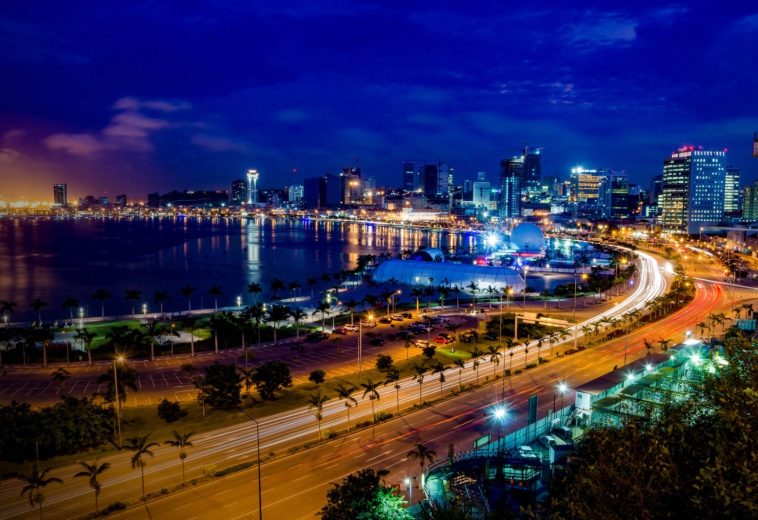There is a growing population of youth in Africa, which emphasises the need to strengthen democracy and governance. African nations must take advantage of this to transform the continent and its governance by harnessing the potential of their youth in accordance with Agenda 2063 and the Sustainable Development Goals. This is possible because the generation of emerging youths holds hope for addressing political, economic, representation, and public service issues. The impact of youth leadership on African political leadership will be discussed in this article.
Youths as Catalysts for Political Change
Youths are a powerful force for global political change; however, they are marginalised on both an economic and political level and are inadequately represented. The youth are seen as key to bringing about necessary changes in society. However, one major hindrance to youth political participation is inadequate legislative frameworks. In recent times, there has been a gradual shift; nations have witnessed rising civic engagement and a global effort for inclusivity. These are indicators that youth are becoming more recognised in politics. The outcome of these shows that substantial participation is achievable, even though there are still challenges to be addressed, such as the influence of political parties and financial constraints in empowering and encouraging youth in the political landscape.
African Youth and Politics
Africa’s youth participate in politics in significant ways as voters, activists, party members, lawmakers, ministers, and party supporters. They are heavily involved at the municipal and national levels, despite being used by political parties. Although the youth have been identified as the hope for the future, they have been marginalised in this field as well.
In recent years, young people’s involvement in politics has been evident on social media, which has evolved as an alternative political platform. They are, nevertheless, marginalised and kept out of meaningful decision-making and policy implementation processes by the current political institutions. This narrative is gradually changing.
ASSESSING THE IMPACT OF YOUTH LEADERSHIP IN THE AFRICAN POLITICAL LANDSCAPE.
Enhances youth visibility
African youth have been vocal about political change and governance issues. These leaders are actively rewriting stories in the political sphere by increasing the prominence of youthful voices. In partnership with the media, they tell their stories, promote media literacy, and utilise social media to express varied viewpoints. They get involved in initiatives that make sure that the views of the youth are heard. A typical example is the recent developments in social media used as a channel to encourage youth registration for elections, as seen in the 2023 Nigerian presidential elections.
Also, some of these leaders go the extra mile by working with organisations to promote reforms in education, enhance entrepreneurship, and push the agenda for many other positive developmental agendas, resulting in a political environment that is more welcoming to all.
This change is best shown by African youth political leaders such as Bobi Wine, Chike Ukaegbu, and Kamissa Camara. Ugandan politician Bobi Wine uses social media and grassroots activism to gain attention. While Nigerian leader Chike Ukaegbu stood for president at the age of 35, KamissaCamara, the minister of digital economy for Mali, knocked down barriers between the genders. Their usage of public forums, online platforms, and media helps create a more inclusive political discourse in the nations.
Representation and Diversity
Youth leadership has shown a gradual shift in the representation of youth in the political landscape in recent years. Youths in leadership positions span through various positions. This includes Edem Agbana of Ghana, who began his political career as a student at the University of Ghana and is currently a representative for the Member of Parliament for the National Democratic Congress; Ibrahim Traoré, Burkina Faso’s president, who is serving as the youngest president in Africa at age 34; Emma Theofelus, 23, was appointed Namibia’s information, communication, and technology deputy minister; Ms. Kenewendo, at age 32, is Botswana’s youngest minister, in charge of investment, trade, and industry; these are just a few to mention.
Political Participation
There is a growing importance of youth political engagement as more youth venture into leadership positions. This has laid a stepping stone for many youths to venture into politics as well as be involved in political processes. Promoting political participation involves strategies like voter education and youth engagement programs. Accessible platforms and civic education have further removed barriers, nurturing civic responsibility. Youth leaders like Malala Yousafzai, who advocates for education, Greta Thunberg in climate action, and Varun Sivaram in climate policy showcase how young leaders can drive political engagement on diverse issues.
Affirmative Actions
Affirmative action has been an outcome of the youth in leadership, as this has been a means for promoting young leaders from diverse backgrounds and fostering a more inclusive political environment. Affirmative actions have been implemented through programmes like quotas, financial assistance, and networking events.
Also, affirmative action has had a significant impact on promoting inclusivity, as demonstrated by the contributions of leaders such as Paul Kagame in Rwanda, Amina Mohammed in Nigeria, and Bogolo Kenewendo in Botswana, among many others. Amina supported inclusivity and diversity; Kagame championed gender equality; and Kenewendo broke barriers to empower young people and women in the business world. These prominent figures demonstrated the potential of affirmative action to establish a political climate that truly represents and attends to the varied needs of voters.
Change and sustainability
Youth leaders have advocated for policies that effectively serve the different needs of youth. These included addressing issues related to healthcare, improving access to education, creating equitable work opportunities, and fighting for reforms in various areas. The viewpoints of youthful leaders that have been incorporated into the decision-making process keep yielding results. Prominent personalities such as Julius Malema in South Africa played a vital role in influencing national discourse and promoting constructive change. These examples prove cooperative efforts to solve the various difficulties faced by African youth.
The youth are seen as key to bringing about necessary changes in society; hence, it is necessary to support their involvement in constitutional politics and generate interest in alternative forms of political participation in modern-day Africa in order to overcome this lack of participation.
Youth-Led Protest
It is difficult for demonstrations to influence post-protest politics and developments. However, recent developments have shown the determination of youth movements to bring about complete and long-lasting political change and development.
The youth have protested against dictatorships, extended presidential term limits, concerns with electoral transparency, and unpopular socio-economic policies in several African countries since the Arab Spring and other movements of political protest, resistance, and revolt in Burkina Faso, Senegal, Niger, Togo, and South Africa, among other countries. Although these movements have been successful in overthrowing political administrations and influencing legislative modifications, they frequently encounter obstacles in enacting comprehensive political, social, and economic changes.
The events that transpired in Sudan after Omar al-Bashir’s downfall are noteworthy because they resulted in the establishment of a coalition administration that outlined a plan for the election of a civilian government. The Sudanese example shows progress towards establishing democratic government and socio-economic development, notwithstanding the challenges many protest movements confront in influencing post-protest politics and development.
Evaluating the influence of young leadership in African politics indicates a positive movement in the direction of reform and inclusivity. Despite obstacles, youth contributions are becoming more widely acknowledged. In order to break through the underrepresentation of youth in political leadership, it is necessary to unleash the full potential of Africa’s rising leaders, and funding for youth involvement must continue to boost their involvement.


